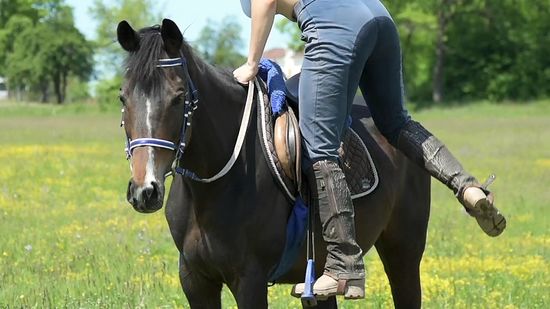Creating a comfortable resting environment for your horse is essential to their overall well-being, both physically and mentally. Just as humans require a restful space to recharge, horses also need a safe, comfortable area to lay down for REM (Rapid Eye Movement) sleep, which is necessary for recovery and health. Here’s how to create the ideal resting space for your horse:
>> READ MORE:
- What Side Do You Mount A Horse The Age-Old Question Answered
- Uncover the Safety Secrets: Why Mounting Horses from the Left Side is Essential
Contents
Understanding Horse Behavior and Resting Needs
Horses are prey animals, so they are naturally inclined to stay alert and be aware of their surroundings. This means they prefer resting in areas where they feel secure, allowing them to lie down and rest deeply without feeling vulnerable. When designing a resting environment, the priority should be creating a space where the horse feels safe, calm, and protected from disturbances, enabling them to relax enough to engage in deep, restorative sleep.
Choosing the Right Bedding Material
The bedding material you use can significantly affect your horse’s comfort. Here are some of the best options:
- Straw: Soft and natural, straw provides cushioning and is easy to handle. However, it can get dusty and needs to be changed regularly.
- Wood Shavings: Popular for its absorbency and softness, wood shavings provide a clean, dry surface but can be expensive.
- Equine Mats: Specifically designed for horses, equine mats offer excellent cushioning, are easy to clean, and help reduce bedding costs. The bedding should be deep enough to cushion your horse’s body and allow them to lie down comfortably. It’s also crucial to ensure the bedding is free from sharp objects or materials that might cause injury.
Optimal Stable Conditions
The stable where your horse rests plays a major role in their comfort. Consider the following factors to make the space ideal:
- Space: The stable should be large enough for your horse to lie down and stretch out without touching walls or other objects.
- Ventilation: Proper airflow is necessary to keep the air fresh and avoid the build-up of harmful ammonia from urine, which can irritate your horse’s respiratory system.
- Lighting: Mimicking natural light cycles is important, as this helps regulate your horse’s circadian rhythms and supports restful sleep.
- Noise Control: Keep noise levels low to avoid stressing your horse. Horses are sensitive to loud sounds, which can disrupt their sleep and cause anxiety.
Keeping the Environment Clean and Safe
A clean and hygienic environment is non-negotiable for your horse’s health. Regular cleaning practices are essential:
- Daily Mucking Out: Remove waste and damp spots each day to prevent bacteria growth and maintain a dry, comfortable surface.
- Replace Bedding Regularly: Fluff and replace bedding as needed to keep it soft and comfortable. Damp, soiled bedding can cause health problems and discomfort.
- Safety Inspections: Regularly check the stall for any hazards, such as protruding nails or rough surfaces, to prevent injury.
Observation and Ongoing Maintenance https://hearttohorses.com/
Creating a comfortable resting space doesn’t end with setting up the stall. It requires consistent observation and maintenance:
- Monitor Behavior: Pay attention to how your horse interacts with its environment. If they seem reluctant to lie down, it could indicate discomfort with the bedding or space.
- Inspect for Hazards: Regularly check for potential safety issues, such as broken equipment, sharp edges, or anything else that could cause harm to your horse.

Conclusion
A comfortable, safe, and clean resting environment is vital for your horse’s physical and mental health. By understanding their natural behaviors, choosing appropriate bedding, ensuring proper stable conditions, and maintaining a safe, clean space, you can create the perfect haven for your horse to rest and recharge. Remember, a well-rested horse is a happier, healthier, and more performance-ready horse. Your care and attention to their resting needs will directly contribute to their overall well-being and success.

